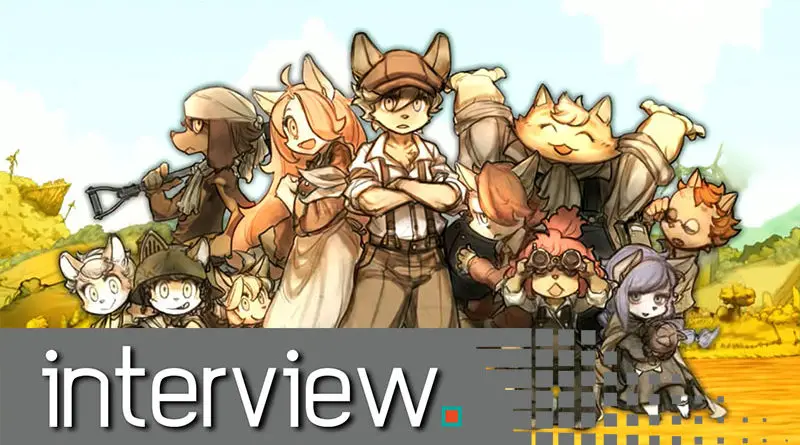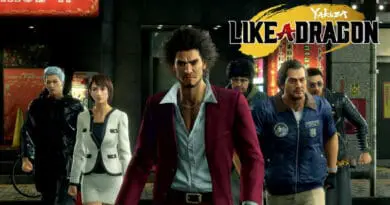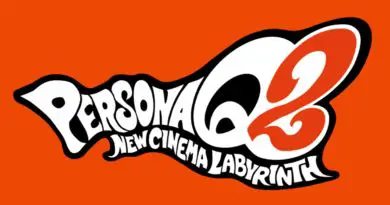CyberConnect2 Interview – Creating Games for Fans and the Exciting Future Ahead
It’s easy to say that, over the years, there have been many anime-based games. Several game developers have tried, and at times, succeeded in recreating spectacular scenes from animes, but CyberConnect2 was one of the first developers to truly achieve this tough feat.
Some may know of the Japanese developer for their massive library of Naruto games they’ve developed, or their upcoming Dragon Ball game, Dragon Ball Z: Kakarot, but for others, the .hack// series comes to mind. While still working with Bandai Namco, now, however, CyberConnect2 has decided to step into self-publishing as they are currently developing their first-ever self-published title, Fuga: Melodies of Steel, set to release for PlayStation 4, Xbox One, Nintendo Switch, and PC-via Steam in 2020.
During an Anime Expo 2019 panel, the action strategy RPG was officially announced, and fans were ecstatic about it. Curious to know more about Fuga and CyberConnect2 overall, Noisy Pixel’s Brad Crespo and Azario Lopez had the opportunity to do so by talking with CyberConnect2’s executive vice president, Taichiro Miyazaki.
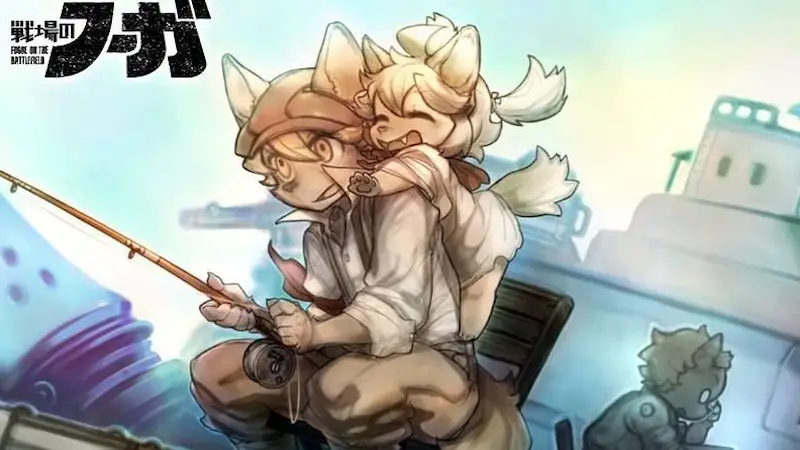
Brad Crespo: CyberConnect2 has been around for over 20 years, which is definitely impressive. What would you say is the company’s biggest accomplishment and challenge so far?
Taichiro Miyazaki: As far as challenges go, there isn’t a particularly big one that comes to mind. To be completely honest, we’re challenged every day because there are a lot of high expectations for what we do with our games and all of the popular IPs that we handle. Basically, it’s constantly a challenge for us to bring up new ideas.
For the accomplishments side of things, basically, for our over 20 years of game development experience, it’s impossible for game development to be completely smooth. But, if I were to pinpoint one major accomplishment, it’s the immense fan base that we’ve built over the years. With the overwhelming support we get from fans, that’s what I would say is our biggest accomplishment.
But one other accomplishment that I’d like to add that has to do with our fans, is opening an office in Montreal. Opening the office was a major milestone for us in many ways as it represented that people outside of Japan, played our games, had the same passion as us and wanted to contribute to our future projects with us. It’s great that even outside of Japan, we’re able to find and work with developers and various talented people to work on our games — it’s wonderful to know that we have support around the world.
BC: I can imagine that is what all game developers want — to have tons of passionate fans! How is the community overall and has it changed over the years?
TM: We’re very, very happy with our community and that it’s been growing so much. For the panel we had yesterday, which was our first Anime Expo panel, we presented our first-ever self-published title. Even though the title is a new IP, all the fans that were at the panel were sharing just incredible positive energy and that was very touching for us. It was wonderful to see so many people supporting us, and it’s because of them that we always have the energy to keep developing new projects, and we want to meet and exceed our fans’ expectations for all of our games.
BC: You shared that opening the Montreal office is one of CyberConnect2’s main accomplishments. I’m curious to know that when you first joined the company, did you think that it would expand globally?
TM: This is actually a really good question because I was in charge of the whole process of opening the Montreal studio. In the early days of CyberConnect2, the company didn’t consider ever expanding outside of Japan. In 2014, however, we decided to consider it. The reason being is because we heard and knew that a lot of people, from all over the world, wanted to work with us, but people from outside Japan weren’t sure about the work environment in our Japan offices. Because of this, we decided to think things through and discuss our options as a company, and we thought it would be a good idea to open a studio that had a different work environment. We had people from North America, Europe, Asia, and more that wanted to work with us, so we ended up opening the office in Montreal.
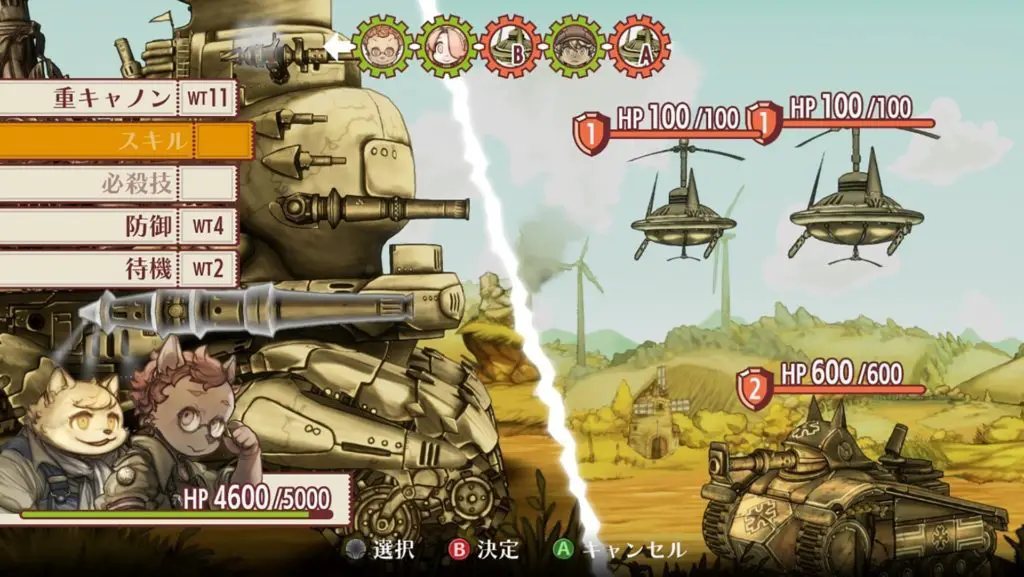
BC: So the first title that CyberConnect2 launched was Tail Concerto, which interestingly enough launched just about 20 years ago in November 1999 here in the west. Now, you are making a spiritual successor to it, which is Fuga. Do you think it’s important for the team to go back to Tail Concerto’s universe?
TM: It was definitely important for us to return to the universe of Tail Concerto. It’s very natural for a game developer to be attached to the first game they ever released, it’s basically the developer’s first baby, so to speak, and throughout the years, we’ve been trying to keep up the spirit of the game by releasing merchandise a little bit here and there. The game is a part of us, it’s a part of CyberConnect2, we highly respect it and that’s why we wanted to create Fuga which is a tribute to the world of Tail Concerto.
BC: Fuga marks CyberConnect2’s first self-published title. What led the team to go this route instead of working with a publisher, like Bandai Namco which CyberConnect2 has partnered with a lot in the past?
TM: So being a publisher isn’t our primary goal. The reason why we decided to go the publishing route is to actually achieve our other goals: to create a multimedia IP. We gained our fame from our .hack// series, which was an original idea and it was published with the help of Bandai Namco. After that, we established credibility, so Bandai Namco was able to give us bigger IPs that they wanted us to develop, and we were honored to handle IPs such as Naruto, Dragon Ball Z, and Jojo’s Bizarre Adventure. Throughout the years, though, CyberConnect2 has expanded, and we’ve heard from staff members that they wanted to work on multiple new projects, and so, we said “Okay, let’s make this happen!”, which is the main reason why we wanted to have our own publishing experience.
What our staff wants to make isn’t limited to games, though. As a company, we’re loyal followers of manga, we love and respect manga, and so we want to challenge ourselves with not only just games but rather a whole new IP that we want to do many, many things with.
We want to grow as not just a game developer, but as an entertainment company with our own IPs that we can develop more from.
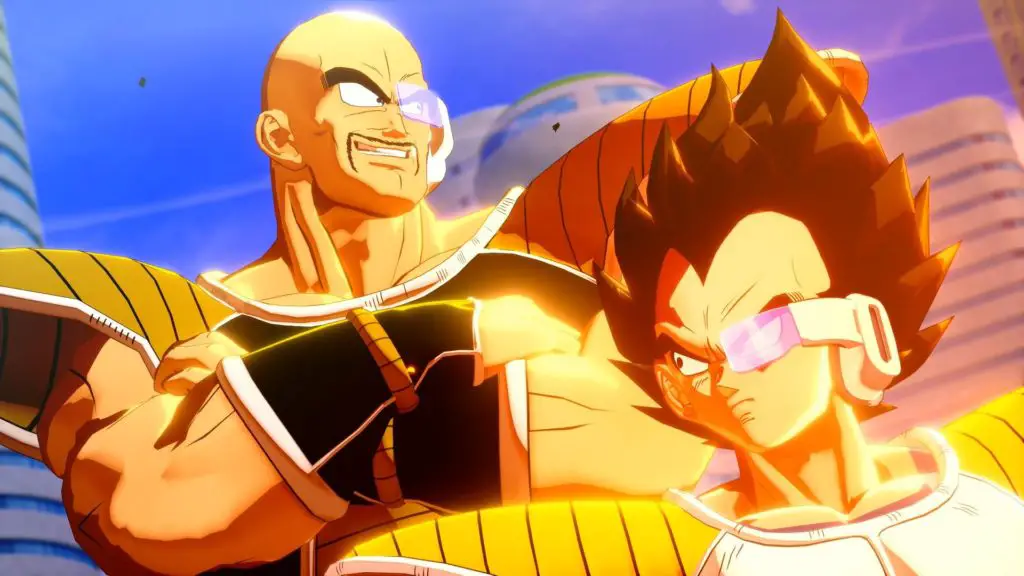
BC: So, as you mentioned, you do a lot of 3rd party development for various major IPs, such as Dragon Ball Z and Naruto. Is there an IP that you’d maybe like to work on that you haven’t yet?
TM: Haha, there’s way too many! We’re huge fans of manga, so if you ask the question to one person in our team, they would literally give you ten different picks or more. It’d be tough to pick just one.
BC: CyberConnect2 has developed games across multiple genres, do you have any particular favorites that you try and push the teams to do?
TM: In terms of one genre itself, not so much — there isn’t a specific one. Usually, there isn’t one genre that we want to focus on, rather, we usually have an idea for a game that we want to make, and then we start to explore what kind of genre would fit that specific game. As creators, we want to create whatever we want, however, we have to consider what players want, so in that sense, we have to figure out what’s popular on the market. So, there’s a balance between what others want and what we want to make. Rather than stick to one genre, we instead focus our energy on creating new IPs or building upon current IPs and later determine what genre would be best for certain IPs.
BC: On the topic of development, do you think your games have changed in any way because of the new Montreal studio? How has the new studio assisted in CyberConnect2’s game development?
TM: So, the Montreal studio actually started with literally three people. Since 2017, our Montreal studio has expanded to 30 people. In the beginning, though, our Japan teams would give each Montreal staff member specific tasks. For example, Keven here [Keven Ouellet, 3D model artist at CyberConnect2] was one of the original staff members, and the Japan team would give him a character model assignment, and say “make a model for this Dragon Ball Z game, and then make this model.” It was an efficient workflow model, basically. However, starting this year, more specifically, we’ve kind of changed our approach since the Montreal studio has more staff members, which have a lot more experience as well. Because of that, now we give multiple major projects to the Montreal studio, instead of small, frequent tasks.
When we first started off, most of our non-Japanese staff members weren’t used to the Japanese style of working, and even for our Japanese staff members, they weren’t used to the CyberConnect2 style of working, so that’s why in the beginning, we made sure that all staff members understood how CyberConnect2 works. But today, we have staff members that are all very well experienced and accustomed to our company’s workflow, so we are now encouraging every staff member to provide feedback. For instance, the Montreal staff members can say, “Oh, well what if we did this, this way?” or “We can try this out, it might work really well for this game.” — so everyone can share their thoughts and opinions.
BC: When it comes to self-publishing in the west, why do you think now is the best time to enter the region and make a name for yourself as a publisher in the west?
TM: In a way, yes we do think it’s the best time, but we’re still fundamentally a developer and a creator, and we just happened to step into publishing to deliver higher quality products for our players all around the world.
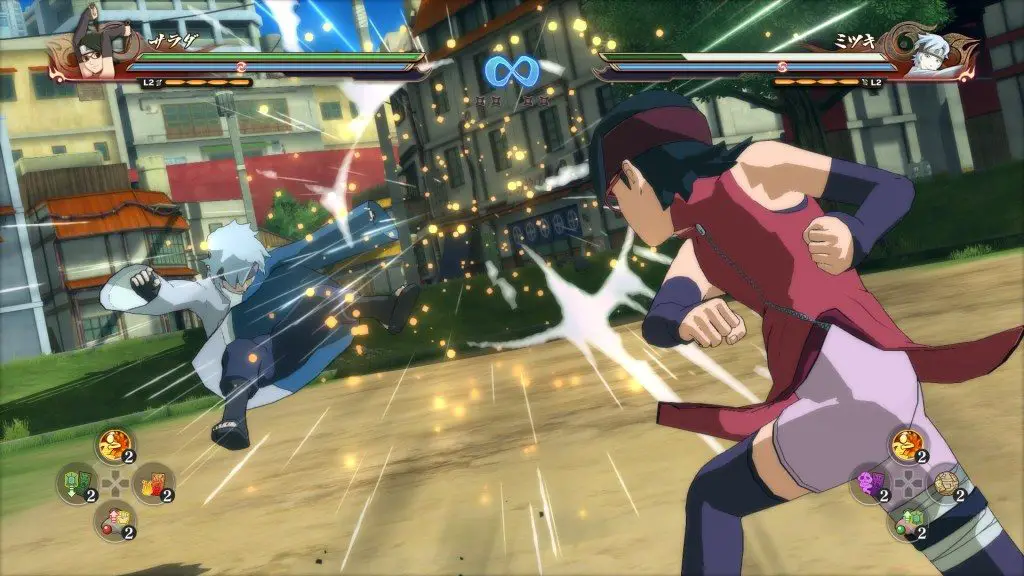
BC: Let’s switch gears a little here and go back to talking about Fuga. During your panel, you mentioned that Fuga is based on War, Revenge, and Kemono. These are, of course, heavy themes, but what’s interesting about the game is that it’s centered around a group of kids. How did the team come up with this story and what inspired it? What does the story represent?
TM: I don’t believe there’s a specific inspiration behind the story, but we’ve been developing games that are centered around characters that are adolescents or early teenagers, so we never thought of creating a game where the characters are adults. In that sense, it was natural for us to make characters that are children for Fuga. The story itself is set in a serious background, and a serious world with war, but for the characters that try to go out and rescue their families, it’s still a very adventurous premise. Having that adventurous aspect to it and also having that companionship and friendship in the story Fuga is ultimately a coming-of-age story of growth.
Azario Lopez: So with Fuga, players can interact with the other characters and build a bond with them. Is there a possibility for romance in this game?
TM: Another difficult question to answer. It’s definitely something that we will have to look into as we develop the game. Right now, our storylines haven’t been fully established yet. To retain the balance between story and gameplay recalls for a romantic development, we may consider including something like that.
AL: I’m trying to fall in love, haha.
TM: Haha, well, at this point in time, we’re unable to give you a clear answer. The concept of romance is very complex, it’s not something we can easily insert into a game, so we’re kind of treading on very thin ice here because if we did focus on romance, the story would end up being really long since we would need to include and develop relationships between the characters and what not. Including romance requires a lot of thought, so that would need to be something we would need to consider as we move forward with the game’s development.
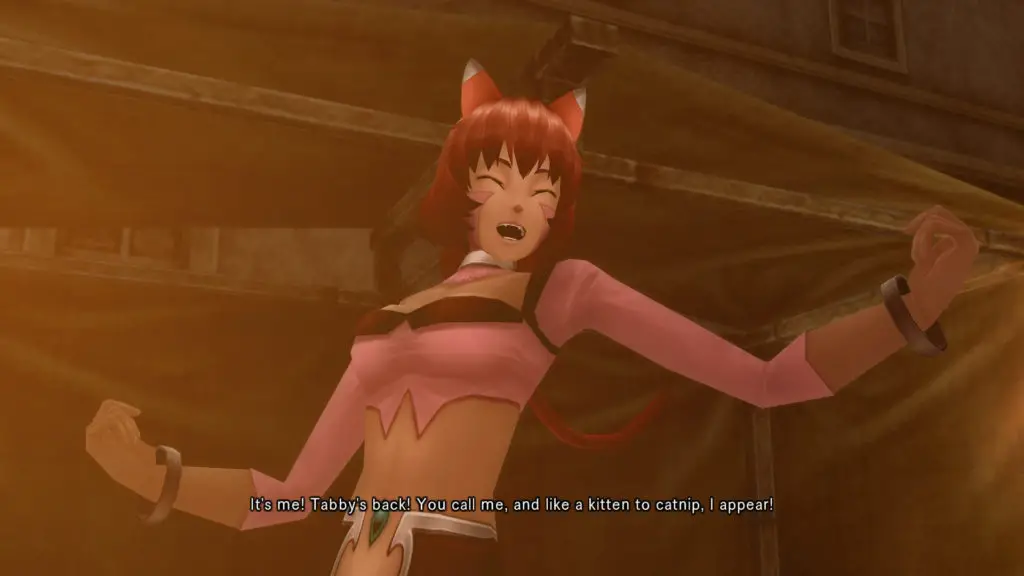
AL: Thank you. So I probably know the answer to this, but considering .hack// G.U. Last Recode did so well, will we see a remaster of the first four .hack// titles and would you maybe like to return to the .hack// series?
TM: So regarding remastering the first four titles, we cannot provide any comments about that. Regarding returning to the series and creating something new, our staff would definitely love to do that. It may happen in the future, but that, of course, would depend on many things.
BC: For a closing statement, can we get a comment for fans looking forward to Fuga and other future CyberConnect2 titles?
TM: We’re going to do our best for the development of Fuga, and we want to establish a solid framework for the solid story in the game. Yes, the difficulty level for the game is obviously going to be very high, however, we want to be able to make it so the game itself will be very captivating for all of our fans, so we will need all of your support from now on. Also, as we said earlier, we want to grow as not just a game development company, but as an entertainment company, so we’re going to be challenging ourselves in the fields of animation and manga. In the future development of our IPs, we want to be able to reach everyone around the world, so please continue to support us with that.
This post may contain Amazon affiliate links. As an Amazon Associate Noisy Pixel earns from qualifying purchases.
